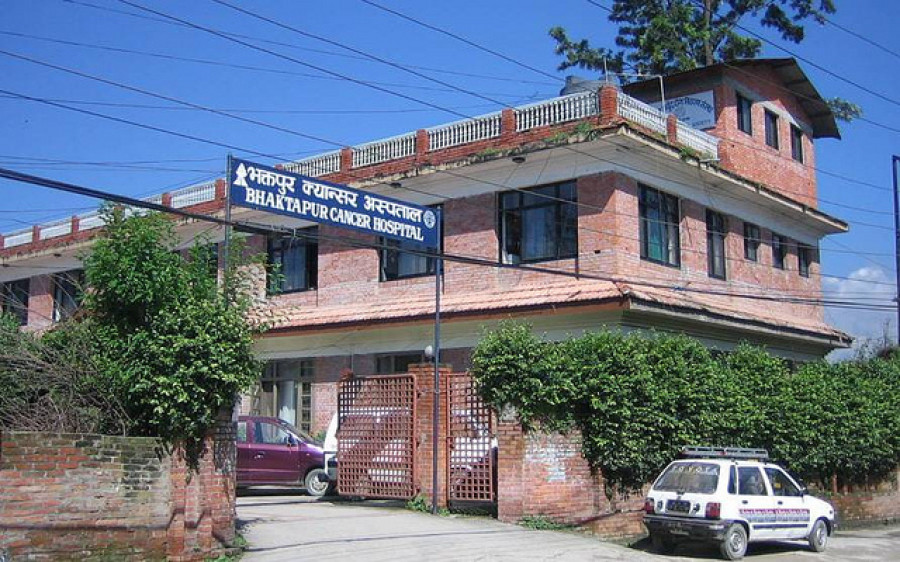National
Doctors call for effective cancer awareness drive as number of patients is on the rise
The number of cancer patients in Nepal is on the rise and what’s more worrisome is that most of them are being diagnosed when the disease has already reached the third or fourth stage, doctors said, urging the government and stakeholders to run awareness campaigns.
Arjun Poudel
The number of cancer patients in Nepal is on the rise and what’s more worrisome is that most of them are being diagnosed when the disease has already reached the third or fourth stage, doctors said, urging the government and stakeholders to run awareness campaigns.
There, however, is no exact nationwide data available on the number of cancer patients in Nepal.
According to doctors, more than 70 percent of cancer patients reach the hospital mostly when they are in the third or fourth stage, making treatment almost impossible for the patients.
According to Bhaktapur Cancer Hospital, there could be around 40,000 people across the country suffering from different types of cancers. The hospital estimate suggests over 19,000 cancer patients die in Nepal every year. There, however, is no exact nationwide data on the number of cancer patients in Nepal.
“On an average, every day, nine new cancer patients visit our hospital,” said Shrestha. “Around 20 to 25 patients who come to the hospital die every month. No one is immune to cancer and the diseases does not differentiate age, sex, and wealth of people.”
Cancer is a fatal disease, but if diagnosed early, it can be controlled, and people can lead normal lives. The increase in use of tobacco, alcohol and unhealthy foods, rampant use of pesticides in vegetables and fruits are some of the reasons for the rise in number cancer patients in the country, Dr Rishikesh Narayan Shrestha, director of Bhaktapur Cancer Hospital, told the Post on Monday.
Dr Sandhya Chapagain, an oncologist at Bir Hospital, said that in Nepal’s context the male population is found to be suffering from lung, throat and neck cancer, and women from cervical and breast cancer.
“We have seen blood cancer among many children also. No one knows the exact cause of cancer, but if it is diagnosed in early stage, it can be cured,’ said Chapagain.
On Monday, marking World Cancer Day, the World Health Organization said the health systems in all countries must provide cancer screening, detection and diagnosis at all levels of care.
According to WHO, tobacco is the single largest cause of cancer, making up around 22 percent of cancer deaths. The UN agency has called on all member states to better regulate alcohol consumptions and promote the virtues of healthy diet and active lifestyle.
“In 2018, 18.1 million new cases developed worldwide, while around 9.6 million people died from cancer. Around 70 of those deaths occurred in low and middle-income countries, including those of the WHO South-East Asia Region,” the UN agency said in a press statement released on Monday. “Inadequate access to cancer screening, diagnosis and treatment is the primary cause.”




 9.89°C Kathmandu
9.89°C Kathmandu














